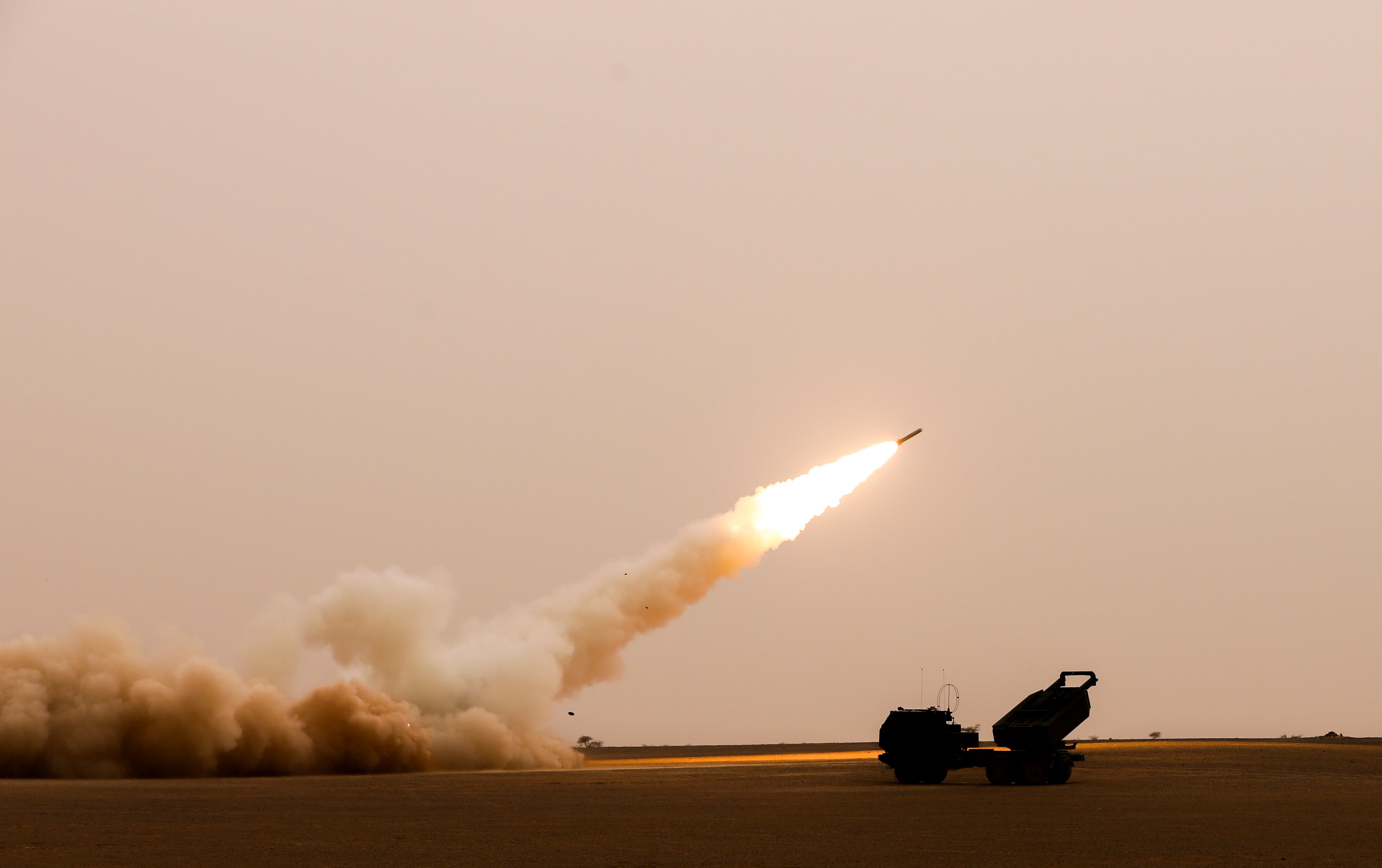WASHINGTON — The U.S. Army selected Shift5, a cyber defense and predictive maintenance company, to harden its prized M142 High Mobility Artillery Rocket Systems against virtual threats.
The Virginia-based team is expected to outfit the HIMARS fleet with tools to detect digital anomalies, like system intrusions or tampering, as well as to help forecast when parts will fail and fixes are needed. A spokesperson on Dec. 6 declined to say how much the deal was worth and for how long it would run.
The Lockheed Martin-made HIMARS have attracted worldwide attention as the Ukrainian military employs them to battle back another Russian invasion. The launchers, capable of firing the long-range Army Tactical Missile System, or ATACM, first arrived in summer 2022, with the U.S. committing more than three-dozen to the embattled country.
“The HIMARS platform has proven to be a critical asset in maintaining our national security, as well as the security of our allies and partners,” Michael Weigand, Shift5′s cofounder and chief growth officer, said in a statement. “As these platforms continue to operate in contested environments around the globe, and as our adversaries continue to innovate, it’s of the utmost importance to ensure they’re equipped with the best platform data collection and intrusion detection systems available.”
RELATED

The Pentagon is grappling with growing cybersecurity concerns as it pivots away from the Greater Middle East to confront the ambitions of Russia and China. While extremist or insurgent groups of the past posed some online threat to the U.S., their capabilities pale in comparison to that of Moscow or Beijing.
The Government Accountability Office in 2018 said the U.S. military’s increasingly computerized weapons were at risk of harassment or hijacking. The Pentagon has since acknowledged the report and sought to address the issue.
“This employment is a perfect example of the U.S. Army’s commitment to readiness and modernization,” Richard Clarke, a Shift5 board member and former Special Operations Command boss, said in a statement. “In order to ensure our military maintains its competitive edge and deters its adversaries, we need to continue putting innovative solutions like this in the hands of our warfighters.”
Defense News reporter Jen Judson contributed to this article.
Colin Demarest was a reporter at C4ISRNET, where he covered military networks, cyber and IT. Colin had previously covered the Department of Energy and its National Nuclear Security Administration — namely Cold War cleanup and nuclear weapons development — for a daily newspaper in South Carolina. Colin is also an award-winning photographer.








